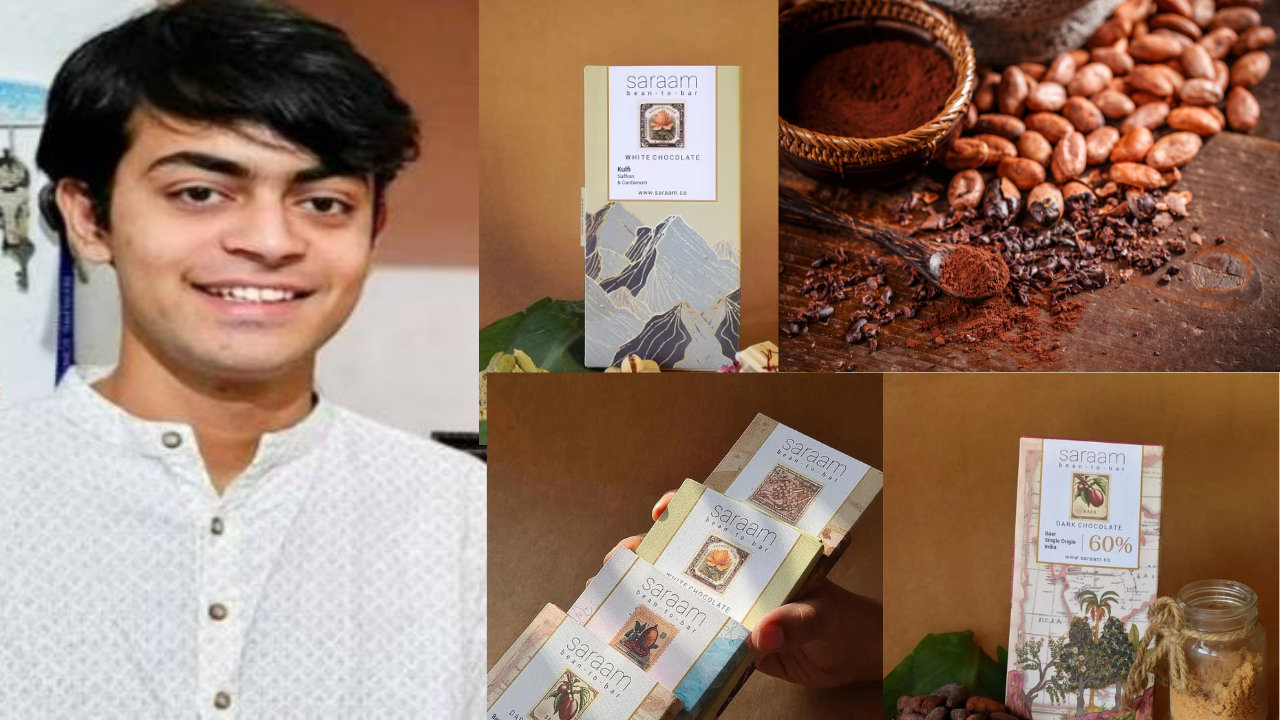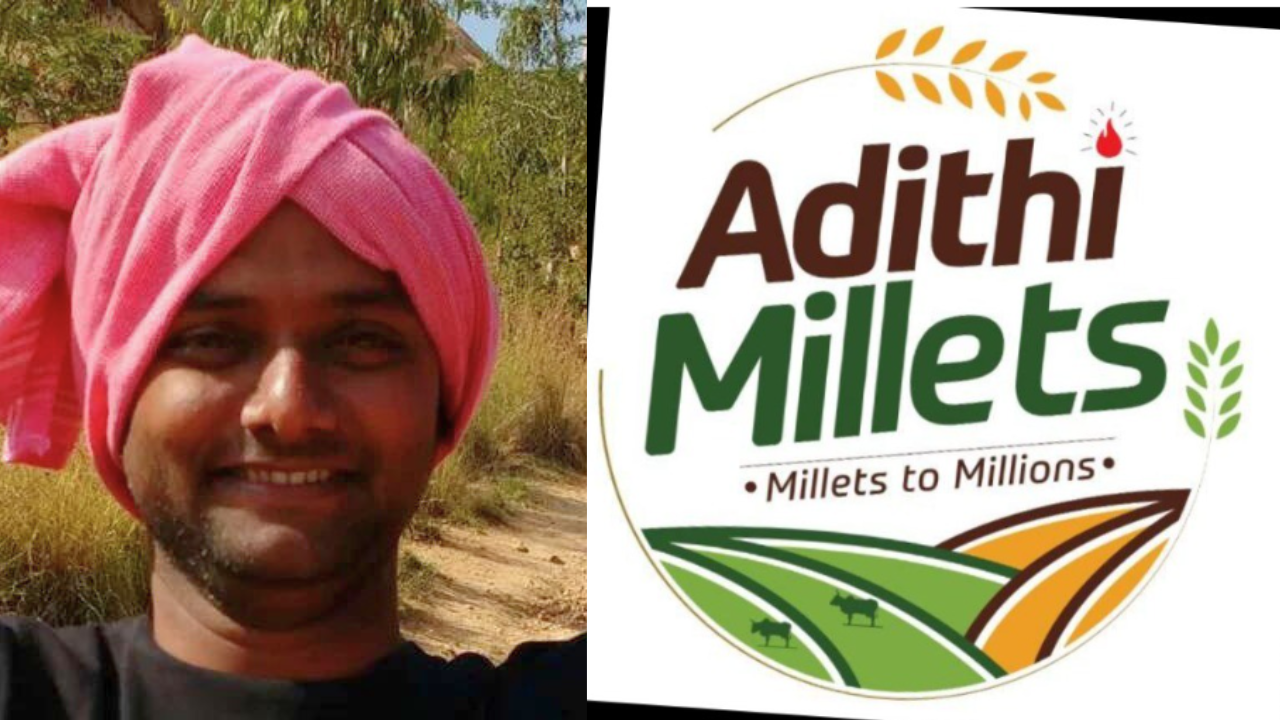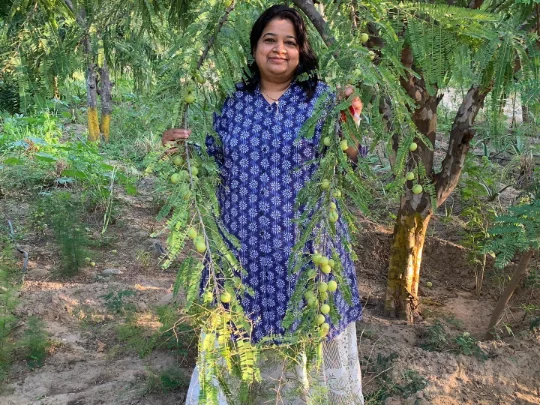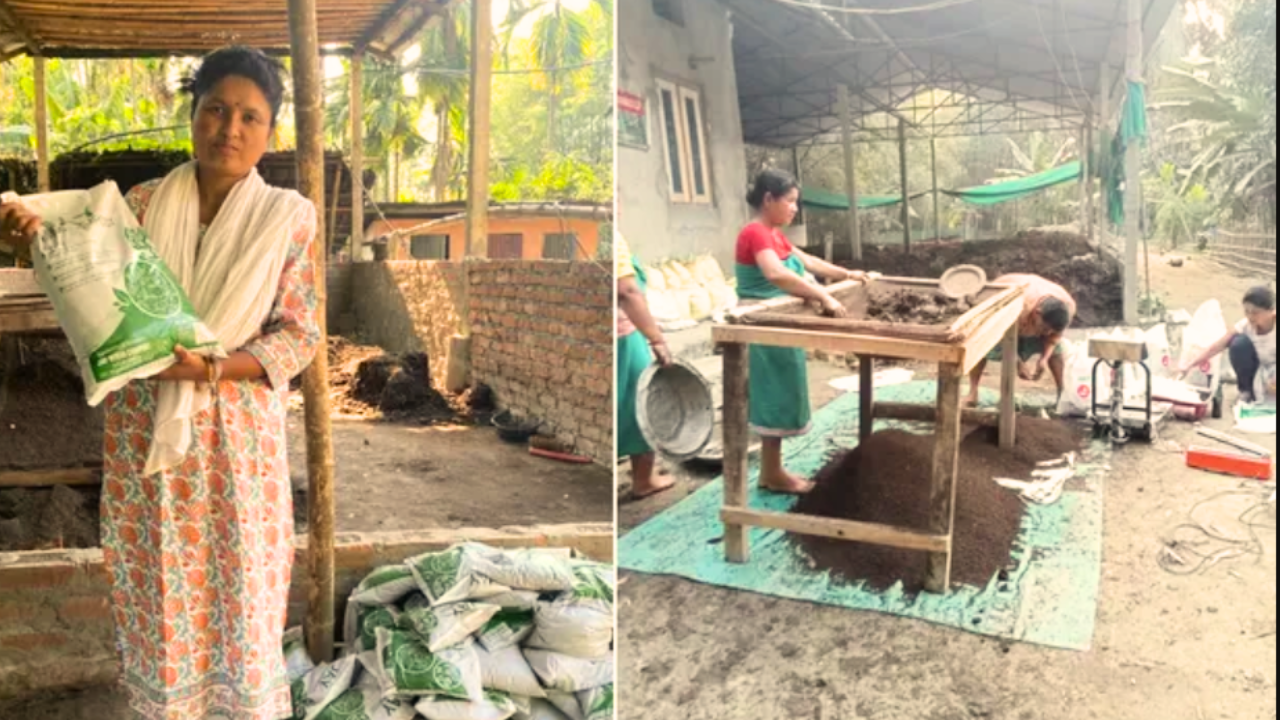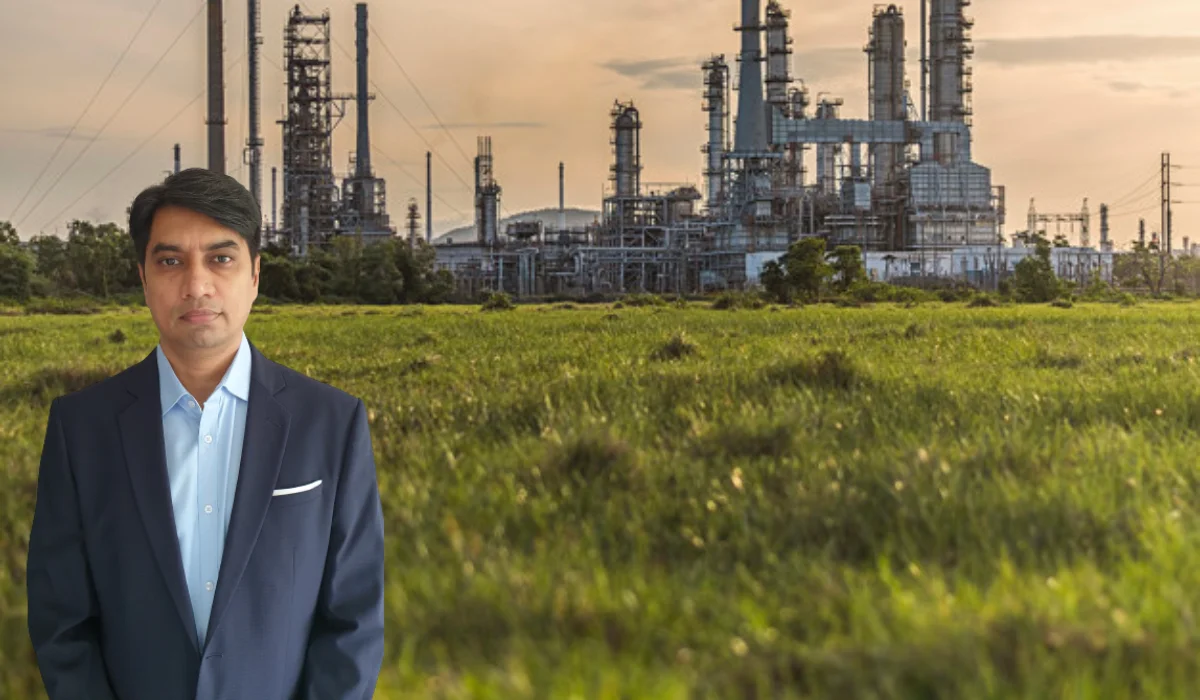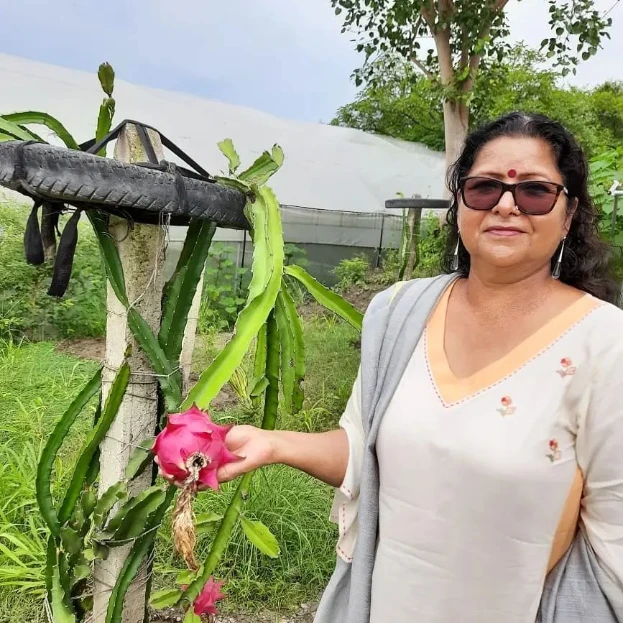Milan Sharma runs Revnar Farms in Faridabad. Once, a cow on her farm was in distress for about eight hours, but there were no local vets available. Milan got in touch with a veterinarian from the Animal Husbandry Department of Haryana through a video call. She had been in touch with this vet for a while. The vet guided her over the phone on how to help the cow.
She mentioned, “It was the first time I had ever reached inside a cow and felt its cervix.” With the vet’s help, she did an internal exam, checked how much the cervix had dilated, and figured out the position of the calf’s head. The vet provided guidance on how to keep the cow calm until it gave birth. This was a significant step for Milan, as she used to be cautious around the animals on her family farm and avoided close contact.
Milan, along with her husband Chetan Sharma, co-founded Revnar Farms. Milan used to teach German before this. Their farm follows a sustainable and organic farming approach. Currently, the farm is home to 50 adult cows and 70 calves. Chetan expresses, “We really love being around these wonderful and cute creatures.”
They use 12 acres of their land for growing fodder and 21 acres for cultivating grains, pulses, and seeds. Their products are sold through direct orders and their own website. On average, they earn about Rs 70 lakh in annual revenue.
Journey begins…
After completing her Master’s degree in Biochemistry, Milan got married and became a homemaker for several years. Once her sons grew up, she took up learning German as a hobby. This hobby eventually turned into a profession, and she spent many years teaching the language at Amity International School. She was also part of the committee that created German language textbooks for the Central Board of Secondary Education (CBSE) curriculum.
In January 2017, Milan’s life took a turn when her father-in-law, who owned a farm with four cows, passed away. To honor his memory, her husband Chetan decided to expand the farm and bought two more cows. Over time, they acquired more cows and by early 2018, they had 35 cows on their farm. Unfortunately, around April of that year, they lost five cows. This was a wake-up call for Milan, reminding her that these animals were living beings that needed care. She realized that someone needed to look after them, and it prompted her to leave her teaching job and focus on the farm full-time.
She underwent training in commercial dairy farming and adding value to milk products at the National Dairy Research Institute (NDRI) in Karnal. In August 2018, she took over the farm completely. From tending to crops to milking the cattle and ensuring they received the right feed, Milan immersed herself in all aspects of the farm. The family invested Rs 1.5 crore in the initial two years to establish and run the business.
Initially centered on dairy farming due to their growing cattle population, they began using the milk at home and sharing the excess with friends and family. As the word spread, more customers started buying their milk. However, Milan soon realized that relying solely on milk sales wouldn’t be enough to sustain the business.
As a response, they expanded their offerings to include grains, oils, and other products. The farm now cultivates grains such as wheat, sorghum, pearl millet, as well as pulses like pigeon pea, mung bean, and vigna mungo. They also grow seeds like sesame and mustard.
Revnar Farm sells its products through its online platform, including their website, as well as marketing the farm’s byproducts. For instance, one kilogram of paneer is priced at Rs 675, a bottle of 850 ml mustard oil is available for Rs 299, and a kilogram of dried and powdered slurry (khad) is sold for Rs 70 and more.
Organic, natural, and sustainable agriculture
On their farm, the couple practices organic farming using sustainable methods that focus on cow-based agriculture. They steer clear of pesticides and harmful chemicals to produce natural and healthy goods.
To understand how to establish and implement these practices on their farm, Milan has consistently conducted research. She gains new insights by visiting nearby universities and discussing ideas with professors. She frequents various universities like CCS Haryana Agricultural University, Lala Lajpat Rai University of Veterinary & Animal Sciences, Guru Angad Dev Veterinary & Animal Sciences University, and Uttar Pradesh Pandit Deen Dayal Upadhyaya Pashu Chikitsa Vigyan Vishwavidyalaya, among others. Milan notes, “I was pleasantly surprised that every professor, everywhere, gives all their time and information. It has been a wonderful experience.”
Among their sustainable methods is intercropping, ensuring that if one crop doesn’t yield well, they have others to rely on. They also create furrows and ridges in the field to facilitate the application of gobar slurry and improve weed management. They opt for sprinklers instead of flooding the field to conserve water and save on electricity. Chetan adds, “We’ve set up an eight-kilowatt off-grid solar system ourselves.”
Milan began producing jeevamrut (natural liquid fertilizer) and beejamrut (microbe-rich solution for plants) following Subhash Palekar’s zero-budget farming approach. She combines this with prakritik kheti (natural farming).
For example, they nurture the soil and crops using a blend of cow dung, cow urine, tree leaves, jaggery, and gram flour. In place of pesticides, they maintain plant health by using a blend of cow urine, neem, garlic, green chillies, and fermented buttermilk to keep pests away. They use moringa to supply minerals to plants, saving both money and embracing organic practices. Additionally, they operate an 80 cubic meter gobar gas plant for cooking, generating ample manure for the farm. Milan firmly states, “My fields remain free from any artificial substances. This also eliminates the need for chemical expenses and sprays.”
The animals are cared for using natural approaches, as outlined in booklets from the National Dairy Development Board and the state’s Animal Husbandry Department. Milan prefers these methods over antibiotics due to shorter withdrawal periods, reduced stress on animals, and cost-effectiveness.
While adopting natural and sustainable practices reduces costs, Milan emphasizes their commitment to delivering top-notch products. She remembers, “During my time at NDRI, I discovered that enhancing value consistently improves both product quality and profits.”. Thus, Revnar Farm offers processed oil, dried and powdered manure, cow dung havan sticks, and cleaned and processed lentils. They also provide processed dairy items like butter, paneer, and buttermilk.
As their business grows, the couple’s affection for the animals deepens. Milan recognizes that animals respond positively to love and care, and they’ve grown familiar with her presence. She shares, “They find my voice and presence soothing, just as their presence has a comforting effect on me.”


